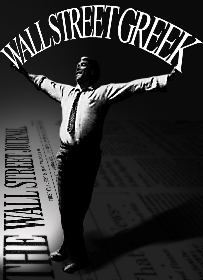Terrorism in America is a Game Changer for Stocks
 |
| Symbol ISIS makes Christians wear for "Nazarene" |
 |
| Kaminis runs WallStreetGreek |
Terrorism & Stocks
A few weeks ago on a day when the SPDR S&P 500 (NYSE: SPY) dropped 1.6%, the SPDR Dow Jones (NYSE: DIA) dipped 1.5%, the PowerShares QQQ (Nasdaq: QQQ) fell 2.1% and the iShares Russell 2000 (NYSE: IWM) slipped 1.7%, I attributed the decline to a credible terror threat shared by the Iraqi PM and the sensitivity of markets now around the fiscal year end of many institutional portfolios. See The Real Reason Stocks Tanked. So if I was correct in my assumptions, terrorism risk mattered to the market on that day, as I’m sure those holding stocks that day would agree. But given the many blatant threats from the Islamic State and its encouragement of western sympathizers to kill “disbelievers,” why isn’t there a hint of a risk premium for terrorism in stocks today? My answer to this rhetorical question is that there will not be until there is because of the human psych’s management of danger and anxiety.Recently, I authored an article on gold and the SPDR Gold Trust (NYSE: GLD) entitled Terrorism Risk is Shockingly Absent from Analyses. I fielded comments indicating disbelief in the issue and discontent with my discussion of it. I think it’s strange that in the face of the rise of perhaps the most viscous terrorist group since the Taliban, American investors have hardly noticed, at least as far as their investment patterns show.
Perhaps it’s attributable to the great success of western intelligence agencies, and Americans simply feel safe. It sure seems as though core al-Qaeda, as the President referred to them, has been rendered impotent. The group of cave dwellers should know better, after the battering they have received, than to strike the United States again. But this ISIS gang is brazen.
I think there’s little risk of the sort of attack today that al-Qaeda would consider catastrophic or on a large scale. However, my view of “catastrophic” differs from that of al-Qaeda I suspect, and I thank God for that, because our nation has likely been spared some hardship as a result of al-Qaeda’s impossible dreams. You see, I believe that a series of small targeted strikes against us regularly would do more harm to our society, economy and stock market than most catastrophic possibilities like that which occurred on 9/11. That’s why I think the market collapsed on that aforementioned day when it seemed an American subway system might suffer a strike because of the Iraqi PM’s comments.
 |
| 5-Day Chart of the SPY ETF at Yahoo |
Terrorism Risk is Real
You know, in West Africa, a great number of people do not believe their Ebola crisis is real. A PR campaign has been devised around educating and reassuring the people that the disease is catastrophically real. Likewise, Americans do not see terrorism risk as real today and American investors especially disbelieve in the possibility. It is human nature to discount risk until it strikes personally, but at that point, everything changes in the human psych. At that point, self preservation rises in importance as that fearful memory takes priority.
Such a paradigm shift in thinking could cause a lasting contraction of P/E ratios. Perhaps it is part of the reason why the Market Vectors Israel ETF (NYSE: ISRA) trades at a P/E of just 12X, versus 17X for the SPDR S&P 500 (NYSE: SPY). Smaller scale terrorism is a daily danger in Israel, versus in the United States. Might our P/E ratio contract under different circumstances?
The Islamic State has grown in number to over 30,000 by some accounts nearly overnight. Because of its very name and now its western opponents, it could draw greater numbers even faster. I’m not yet sure whether its recent engagement of the west through publicized beheadings of western citizens was foolhardy barbarism or ingenious strategy.
It would be foolhardy, because their barbaric beheadings of innocent civilians have hurt and enraged people across Europe and North America, and inspired the bombs now falling upon the death squads. I think we can agree that this is truly a fight worth fighting, and the American people have demanded their President fight it by showing discontent with his initial delay. When the President’s polling fell to historic lows, he was forced to act on behalf of the people and against his natural aversion to warfare. Perhaps even the President didn’t think this was a real problem, but now he does.
But from a strategic perspective, did the cruel murders committed by the so-called “Jihadi John” bring western power upon ISIS earlier than it could handle it? It sure looks that way, but that will likely depend on how hard the west comes down on the Islamic State, and what ISIS does next. On the other hand, by drawing the west into this battle, ISIS could now draw new recruits who simply want to fight America.
What ISIL could do to draw greater support from a region full of unemployed young people seeking the next cause to back is to engage more dictatorships, kingdoms and certainly Israel. From chaos like that which followed in Egypt and Libya, the wrong sort of order like that of the ISIL could develop. This is the greatest fear of Saudi Arabia and Jordan today, and why they will steadfastly oppose this uprising.
But the Islamic State could gain serious credibility among peoples of the region by engaging Israel. I fear that if it were to do so, no matter how badly it would pay for it due to Israel’s important resolve and power, little Islamic State factions might rise up within every Muslim nation. The Palestine problem is the perfect fuel the devil would use to fire the inferno of a global religious war pitting Muslims against Christians & Jews. I know most readers will view this as far-fetched fiction, but others will see it as certainly a future possibility. It’s clear that this problem has only evolved, where we thought we could fix it time and again. It’s ironic that the reward for victory in World War II would be used by the devil to fuel World War III. So even in his loss, the enemy of humanity planted the seed for a greater war.
The Islamic State’s broader war beyond Iraq and Syria could also draw more support from radicals embedded in western nations. We recently read about a disgruntled employee in Oklahoma who beheaded a woman at his former place of employment in the name of Islam. Was this the first ISIS attack on America, unnoticed by investors due to its workplace aspect? Obviously, his strike was driven by his job loss, but it was noted that he had recently converted to Islam and had been trying to convert colleagues. In fact, he was supposedly fired for arguing for the stoning of women, which falls under Sharia Law. The random murder he committed (he did not kill his boss or immediate coworkers) and the manner in which he did so (beheading) marked the first American killing in kind with the Islamic State. It was coldblooded, heartless and evil, not driven by any good faith, but by the perversion of faith, which is the devil’s way.
How Terrorism in the U.S. Could Change Society, Harm the Economy & Sink Stocks
I can think of a great number of ways terrorists could severely harm America, and I am thankful that I am on the side of America because of it. We would probably be wise to keep ideas like these to ourselves, but by now, some 13 years since 9-11, surely every idea has been considered by the bad guys; somehow I doubt it. I pray nonetheless that these next few thoughts never become the seeds of harm.
Subway plots are often discussed and sometimes employed by terrorists. Whether the sarin gas attacks in Japan or the tube tunnel bombings in London are used as evidence, these transportation lifelines have been shown to be in the plans of the bad guys. The latest warning from the new Iraqi PM showed they may be currently important for the U.S. and France.
Why do terrorists consider the subway? Security is light in the subway and a terrorist is likely to make it there without a hitch, whereas it is exceedingly difficult to board a plane with a bomb today. I think it comes to mind to them as an alternative to aircraft, because being poor, they use the subway and have seen them to be jammed full of people. So they offer significant killing opportunity for a bomb and the potential for world newsworthy destruction. The same goes for buses, which have been targeted in Israel over the years.
There is actually PR value in these attacks. I remember the disgusting feeling in the pit of my belly when I discovered such misguided PR value personally. While in Cyprus, traveling in search of the forefathers of a friend of mine, we met a Lebanese girl who tagged along. On the highway, she said about September 11th, of which I was a witness to (an event which forever changed my life), that, and I quote her, “We were jumping!” In other words, she was jumping for joy about an event that needlessly caused the death of people like me and my colleague, and almost killed me by the way. My friend and I looked at one another and I immediately considered leaving her on the highway. We certainly did not stay in touch, but I saw how what we in the west see as horrible and unreasonable by any means, could have PR value to others, including even people we might otherwise consider as mild mannered.
A subway strike would have lasting impact. Disrupting the way to work for people can make their everyday daily life harrowing. Imagine the anxiety of every New Yorker the day after something like this, even years afterward. After all, the subway is the lifeline of New York and many other major metropolitan regions. It runs under the streets we walk on and the buildings we work in. There’s almost no avoiding it for a large number of the 10 million people who live in New York City. Citizen aversion to the subway would mean increased security expenditures and lost income for municipalities. While some of that may be restored through increased bridge and tunnel volume, I expect much would be lost to the use of bicycles and our God given two feet.
What about the mall?
I always thought that repeated attacks on malls could severely impact the economy and stymie important holiday shopping. Targeted strikes against J.C. Penney (NYSE: JCP) or Sears (Nasdaq: SHLD) stores could put the struggling retailers and important American employers out of business even. While al-Qaeda has wanted to completely blow up structures, men with machine guns would be just as disruptive. Obviously, today there are other options for shoppers, and terrorism could actually increase the sales of Amazon.com (Nasdaq: AMZN), which allow for shopping from home or office.
Note that I wrote “repeated strikes,” because I believe that is what is necessary for a paradigm shift in our society’s thinking about terrorism. One-time events are remembered but they do not necessarily hamper consumer shopping or corporate planning, nor do they have an important lasting effect on stocks. These are issues investors do not yet consider in valuation, but someday they could due to the real and escalating threat we face today.
Germ Warfare
Imagine if biological warfare were waged upon us. Joseph, a scientist I know calls bio-weapons the poor man’s WMD. He speaks of how easy it is to make “bugs” antibiotics resistant. What if this “mystery virus” now plaguing children across the country, and possibly also causing a sort of paralysis in some, were manufactured? Imagine if the disease were Ebola. Would the stores be full or empty around the holidays? Would people be eating out at restaurants or eating in? Our economy is 80% services driven, and if people aren’t getting their nails done and eating out, what happens to GDP? What happens to the labor force?
I can think of a great many more “catastrophic” though low scale dangers and I could explore this issue in-depth for pages more, but I’m going to stop here with one more important note. I am concerned that terrorism begets terrorism, and that attacks could exponentially increase in numbers. These kinds of explorations in thought are not currently present on Wall Street, but would be ever present if there is a paradigm shift. So, I conclude with concern, that “catastrophic” is in the eyes of the beholder. I’m glad al-Qaeda thought it had to outdo its WTC attack with something even bigger, and so limited itself from really terrorizing America. ISIS has already suggested to sympathizers that any sort of attack on westerners would serve their cause, and so it could accidentally do more damage to America than al-Qaeda as a result.
As this terrorist organization is smothered, I expect it to lash out at the west as it has promised it would. I see no risk of this priced into stocks today, but I expect that when something happens, it will suddenly strike into stocks, and a new paradigm may plague the market for awhile thereafter. But if terrorism becomes a plague itself, then P/E ratios may contract for the long-term. Given the gains achieved so far this year in stocks, and the important period we are now within, where institutional money managers are actively managing portfolio year end issues, we are especially sensitive to this risk today. ISIS is under attack and soon will be desperate, and it appears wants to strike terror into the heart of the west. So, I strongly suggest investors hedge broad market risk near-term, and holders of the SPDR S&P 500 (NYSE: SPY) divest it for the near-term. Obviously, over the long-term, we must invest somewhere, and the stock market is a great place for that, but there should always be a place for business entrepreneurship, real estate and gold in portfolios as well.
I’m going to follow up this article with reports on individual stocks I would buy on any downturn, and those I see as worth holding today no matter, along with those I would divest. I already recommended the sale of Tesla (Nasdaq: TSLA) and biotechnology stocks as part of this series of works. I have an aversion to gold now due to dollar pressure, but see terrorism as its most likely next catalyst. Readers may want to follow my column and my blog to be notified of new works.
Please see our disclosures at the Wall Street Greek website and author bio pages found there. This article and website in no way offers or represents financial or investment advice. Information is provided for entertainment purposes only.

Labels: Editors_Picks, Editors-Picks-2014-Q4, Global Affairs Geopolitics, Market-Outlook, Market-Outlook-2014-Q4, Terrorism












0 Comments:
Post a Comment
<< Home